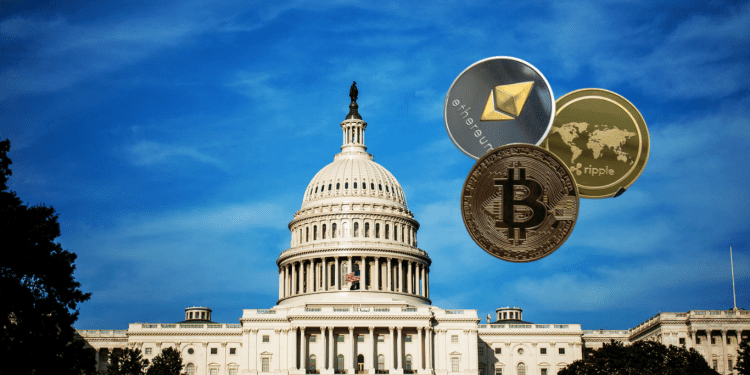As crypto fraud and scams are rising, Congress is finding it necessary to dig a little deeper into the operations of major crypto exchanges. Representative Raja Krishnamoorthi, Chair of the Subcommittee on Economic and Consumer Policy, has sent letters to five crypto exchanges asking them to explain how they are fighting crypto fraud and scams.
Congress Sends Letters to Crypto Exchanges
At the end of August, the House Committee on Oversight and Reform sent letters to federal agencies and crypto exchanges.
In brief, the letters requested information concerning the steps these exchanges will take “to combat cryptocurrency-related fraud and scams and extra actions that are required to safeguard Americans.” Representative Raja Krishnamoorthi (D-IL) noted in a press release on August 30,
Scammers have cashed in as stories of skyrocketing costs, and overnight richness has attracted skilled and amateur investors to cryptocurrencies. The lack of a central authority to flag suspicious transactions in many situations, the irreversibility of commerce, and the limited understanding many consumers and investors have of the underlying technology make cryptocurrency a preferred transaction method for scammers.
The letters sent to the crypto exchanges are important because these companies have the authority to monitor their transactions and implement proactive measures to prevent fraud and scams. The crypto exchanges that received such letters include:
Why Congress Deems these Letters Necessary
The letters from the committee mention the losses people suffered due to crypto fraud and scams. Data from the Federal Trade Commission (“FTC”) reveal that over 46,000 people in the United States have lost $1 billion due to crypto fraud and scams since the beginning of 2021.
This equates to a reported loss of $2,600 on average. With Bitcoin at the top of the list accounting for 70% of the scams from this data, coming in second and third are Tether at about 10% and Ether at about 9%.
These letters also outline various risks inherent in the crypto industry and with crypto transactions. They emphasize fraudulent listings and “rug pulls,”—which is where a coin is hyped up to increase its value only to eventually shut down everything and leave with all the funds generated from the project. The public should also be aware that some exchanges permit certain digital assets to be listed on their sites “with little or no vetting.” This increases the risk of theft, scams, fraud, and other vulnerabilities.
Looking Deeper at Coinbase
Federal agencies have been scrutinizing Coinbase for quite some time. The SEC is investigating Coinbase with several digital assets allowing users to trade in an unregistered offering. It is alleged that some of these tokens are unregistered securities.
On a separate issue, federal agencies—including independent investigations brought by the DOJ and the SEC—announced charges against a former Coinbase employee and others for wire fraud and insider trading. These charges allege that the former employee, Ishan Wahi, tipped his brother and friend on the timing and names of certain digital assets ahead of their public listing announcements on Coinbase, allowing the individuals to reap substantial profits. This case led to illicit earnings of over $1.2 million.
As a result, federal agencies would be most interested in reviewing Coinbase’s responses to its letter.
Federal Agencies’ Plans for Combating Crypto Fraud and Scams
Many federal agencies have recently announced that they are “going after alleged crypto scammers,” with each agency initiating its investigations against crypto scammers differently.
Additionally, the press release for the Subcommittee on Economic and Consumer Policy notes that further regulatory action is necessary—including issuing these letters—because consumers often lack the awareness to make informed decisions about cryptocurrencies.
Further, if a crypto scam occurs, insurance companies are hesitant to provide relief due to the uncertain nature of crypto in general. The federal government knows this but has been slow in responding and issuing comprehensive regulations. These letters aim to address these concerns.
Conclusion
Crypto fraud and crypto scams lead to immeasurable losses for many individuals and companies. To safeguard U.S. investors and take a proactive position, Congress has sent letters to major crypto exchanges asking for clarity on how they plan on responding to crypto risks.














